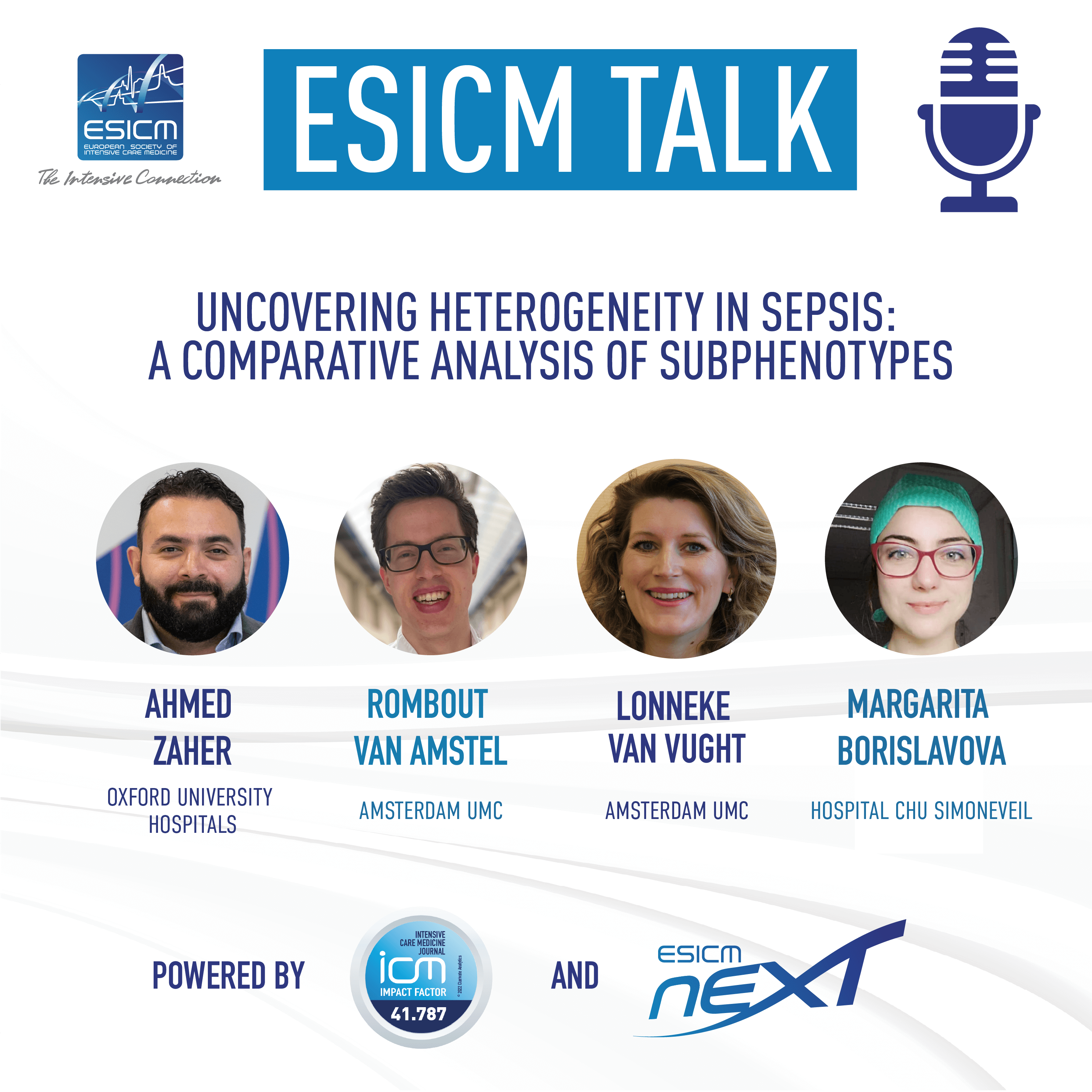Uncovering heterogeneity in sepsis: a comparative analysis of subphenotypes

An ESICM Talk powered by the ICM Journal & the NEXT Committee
Sepsis is a life-threatening organ dysfunction caused by a dysregulated host response to an infection. Despite progress in the understanding of sepsis pathophysiology, no specific treatment has proven successful. The precision therapy, a greater understanding of the heterogeneity of sepsis is needed.
Recent approaches to measuring sepsis heterogeneity used unsupervised computational methods on clinical, biomarker, or gene expression data from observational studies or clinical trial datasets. At present, more than 100 sepsis subtypes are proposed, without awareness of overlap (or clinical implications). It is unknown whether each new subtype strategy is of added value for the patient.
To address this knowledge gap, a study was conducted aiming to determine the concordance between different sub-type labels, outcomes, and biologic pathways of critically ill sepsis patients classified by previously proposed sepsis subtyping methods. Listen to the podcast and learn more about the methodology and findings of this study.
Original article: Uncovering heterogeneity in sepsis: a comparative analysis of subphenotypes